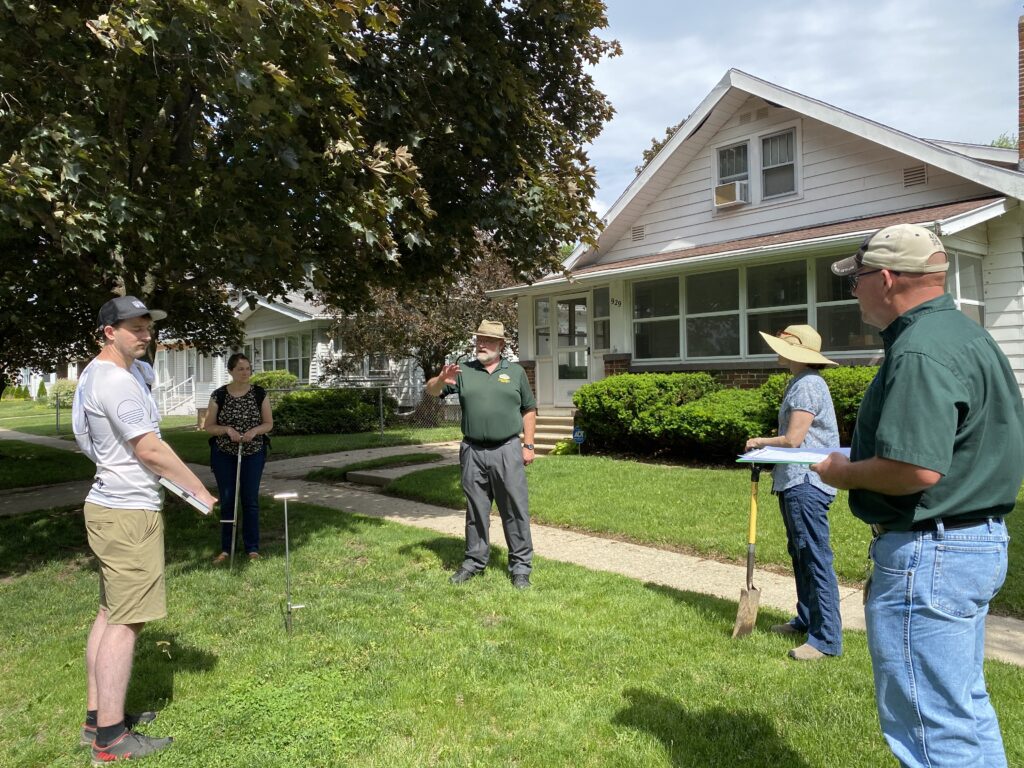 As the year draws to a close, we asked DNR urban forestry staff to reflect on the last 12 months and choose their top highlight – whether it’s a project they’re especially proud of, a new partnership or a deeper relationship with coworkers. Here are their responses:
As the year draws to a close, we asked DNR urban forestry staff to reflect on the last 12 months and choose their top highlight – whether it’s a project they’re especially proud of, a new partnership or a deeper relationship with coworkers. Here are their responses:
“My favorite work event that happened this year was the urban site indexing training hosted in the City of Beloit. Alan Siewert, from the Ohio DNR came to Wisconsin in May to give us hands-on demonstrations of the site indexing techniques they have been perfecting over the years. The urban site indexing helps their communities create well-thought-out master planting plans. Best of all, after not seeing each other for more than a year, we spent a few hours together applying the techniques in a couple of neighborhoods across Beloit. The experience culminated with a nice socially distant lunch and discussion while developing a planting plan.” -Brian Wahl, South Central Regional Urban Forestry Coordinator

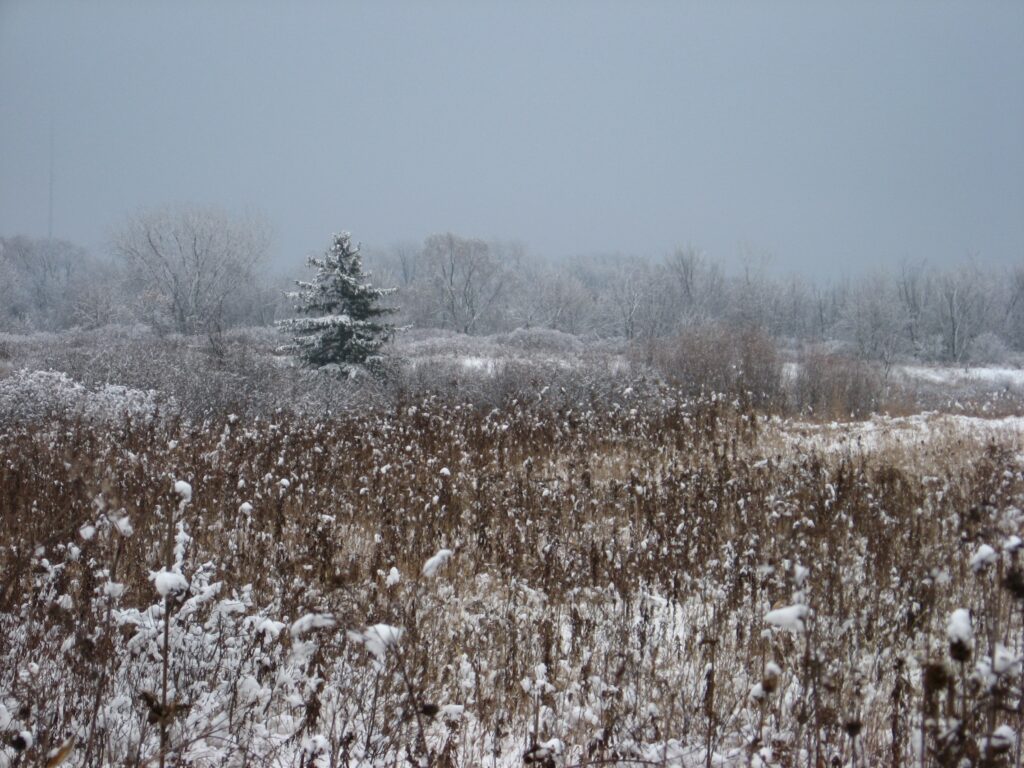 Sunlight fades, then sunlight grows. With those celestial rhythms surrounding the winter solstice, millennia of ritual have been shaped. Winter is historically an extremely dangerous time, in a way unfathomable to those of us with furnaces and stocked pantries. But at the winter solstice, something important happens: ever so gradually, the days start to lengthen, and there is hope that a bright, warm world will return.
Sunlight fades, then sunlight grows. With those celestial rhythms surrounding the winter solstice, millennia of ritual have been shaped. Winter is historically an extremely dangerous time, in a way unfathomable to those of us with furnaces and stocked pantries. But at the winter solstice, something important happens: ever so gradually, the days start to lengthen, and there is hope that a bright, warm world will return.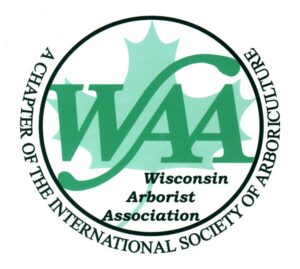 Join the Wisconsin Department of Natural Resources (DNR) and the Wisconsin Arborist Association for the 2022 Wisconsin Annual Urban Forestry Conference. The conference will be held on Feb. 20 – 22 at the KI Convention Center in Green Bay with select sessions available for attendance virtually.
Join the Wisconsin Department of Natural Resources (DNR) and the Wisconsin Arborist Association for the 2022 Wisconsin Annual Urban Forestry Conference. The conference will be held on Feb. 20 – 22 at the KI Convention Center in Green Bay with select sessions available for attendance virtually.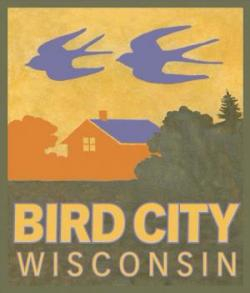 Act fast to keep your Tree City, Bird City and Bee City status! Due dates are as follows:
Act fast to keep your Tree City, Bird City and Bee City status! Due dates are as follows: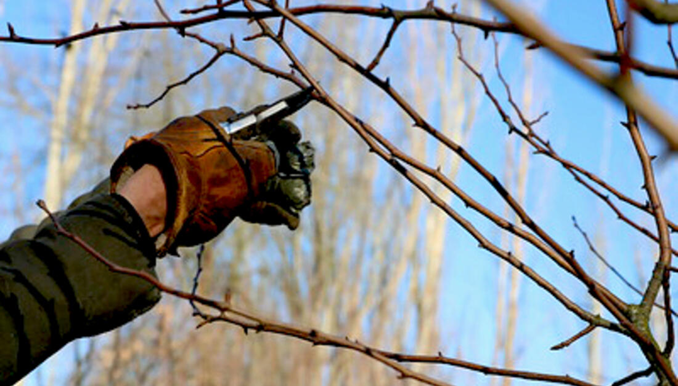 This pruning workshop for ages 18+ is designed to elevate tree and shrub care for professionals and beginners.
This pruning workshop for ages 18+ is designed to elevate tree and shrub care for professionals and beginners.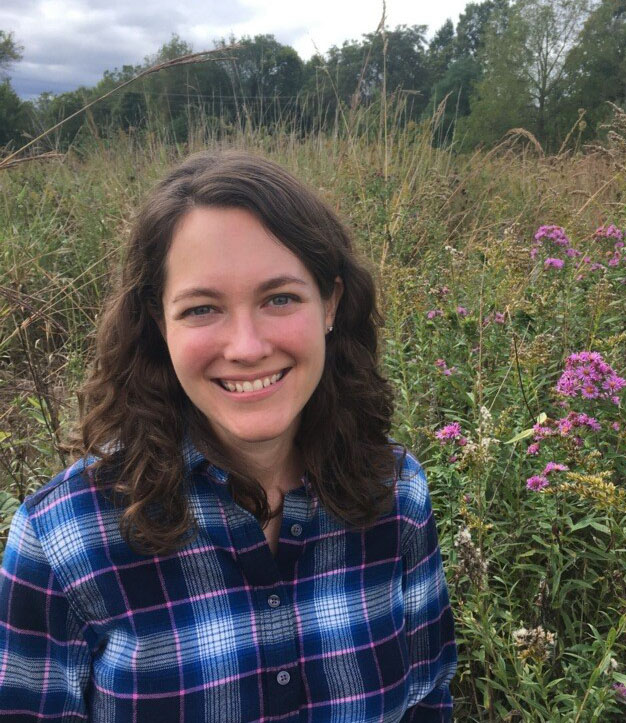 I am very pleased to announce that Patricia Lindquist has accepted the North Central Regional Urban Forestry Coordinator position. Patricia’s first day was Nov. 8, and she is based in Wausau. She is very excited to be continuing her career at the DNR and taking on new challenges.
I am very pleased to announce that Patricia Lindquist has accepted the North Central Regional Urban Forestry Coordinator position. Patricia’s first day was Nov. 8, and she is based in Wausau. She is very excited to be continuing her career at the DNR and taking on new challenges.